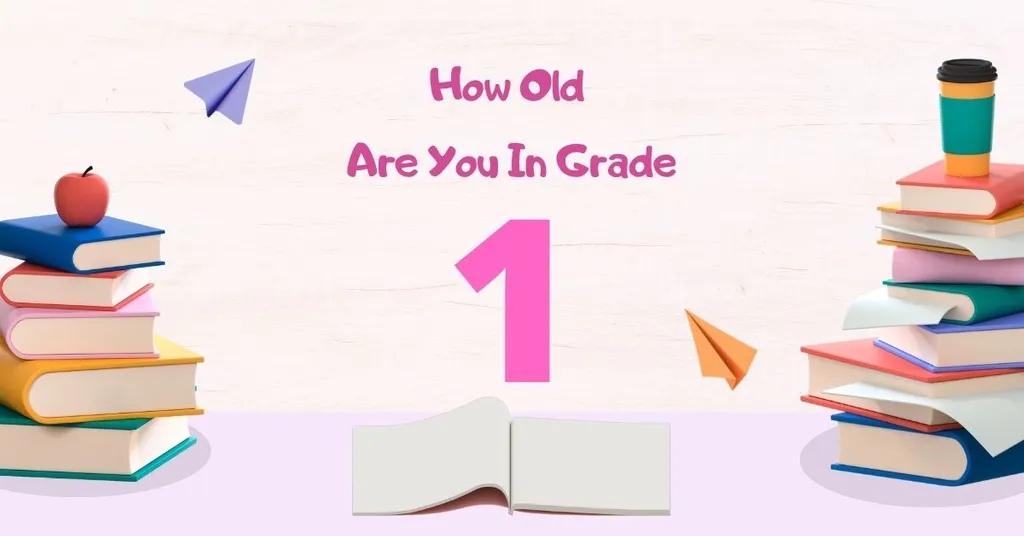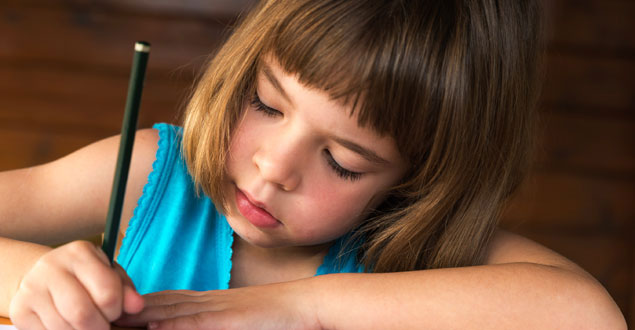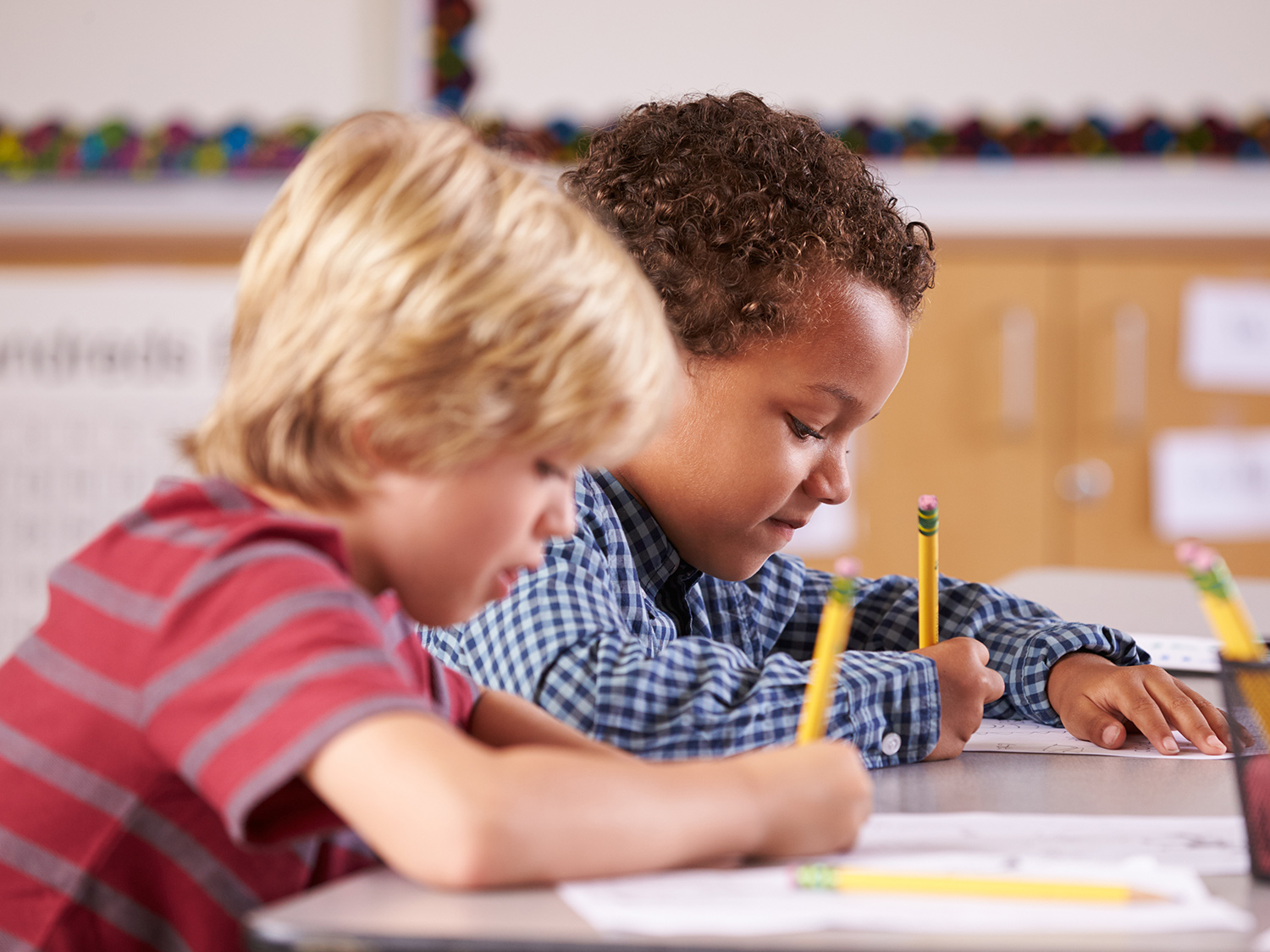Table of Contents
How old are 1st graders? This is the question to ask every year when guardians enroll their children in school. It may be difficult to determine whether or not your child is old enough for first grade – or what grade your kid should be in. So, many parents are interested to know how old are 1st graders.
I’ll respond to the query, “How old are 1st graders?” or “What grade should a 6-year-old be in?” For most youngsters, the first grade marks the beginning of their formal education.

Because every child develops and learns differently, the optimal age for entering first grade may change from one child to the next, but there is a general age benchmark for children entering first grade.
Continue reading to see how old are 1st graders and what milestones the child should have completed by that age.
What is the First Grade?
First grade (sometimes known as Grade 1) is a year of basic education in the United States and several other countries. It is the first year of school following kindergarten. Students are typically aged six to seven.
In mathematics, children may study integer addition, subtraction, and measurement. Geometry and graphing basics may be introduced. Time and money may also be included in the curriculum.
First graders are introduced to the fundamentals of literacy in language, which include writing very simple statements, reading sentences, and mastery of the alphabet, building on what they learned in kindergarten or other forms of pre-school (although, because first grade is the first compulsory level of education in many states in the Union, the level of literacy in incoming students can vary wildly).
Learners are also commonly introduced to the concept of social studies, with an emphasis on establishing the concept of history, both personal and in a broader sense; often, the fundamentals of American history and patriotism are taught, with an emphasis on the founding fathers and the period surrounding the American Revolution.
How old are 1st graders?
I will respond to the frequently asked question, “How old are 1st graders?” by many parents/guardians.
A first-grade child in the United States should be 6 years old, according to the school grade system (But 6 – 7 years of age is also considered normal).
Now, instead of asking, “How old are 1st graders?” you should be able to tell the age of a first-grade student based on the information you collected.
“How old are 1st graders?” – 6 years
The age requirement for a child entering first grade in the United States is significant.
The benefit of first grade is that it is an introduction and enjoyable lesson for a child. Given their age, most children in first grade are in a transitional period between lower and higher grades.
On the other hand, six or seven-year-olds in first grade will have college in mind, and this is where they will begin to learn to be autonomous and think logically.

Is There An Age Requirement For First Grade?
How old are 1st graders? The minimum age for first-grade kids in the United States is six years. The age criteria are the same in the UK; a six-year-old should be in Year 2 of primary school under the UK education system.
Children in the United States begin first grade at the age of six; however, most urban schools have a January entering class. Thus parents/guardians must enroll their children in school in September for all of the pupils who will form the class for the following year.
Each year, large urban regions have two admission periods: one at the beginning of September and one at the end of January or the beginning of February, whichever divides the year most evenly.
Is It Better to Begin School at a Younger Age?
It is best to start your child’s school as soon as they are ready. Most children generate over one million brain networks throughout their first few years. Growing, adapting, and learning from their surroundings are ongoing activities for young children.
When Does A First-Grade Student Begin School?
Schools in the United States officially begin at 7 a.m. and end at 3 p.m. As a result, it is now critical for children to begin school earlier since they are more active in the morning because their minds are more relaxed and more prepared for the day’s activities. So, if schools in the United States begin at 7 a.m., your child should have returned to school before 8 a.m.
What Should a First-Grade Student Know?
Children in the first grade should have a variety of talents, but not necessarily coding skills (lol), but they should have social skills. These abilities include:
Social abilities
- Working, playing, and sharing with others
- First-grade students should be able to follow routines and norms at home and in kindergarten.
- Toys, books, and writing supplies are used in the classroom.
- When necessary, seeks adult assistance.
- Feeling at ease around other first-graders
Reading and writing abilities
- A first-grader should be able to read books to some extent.
- Should be able to experiment with independent reading
- Ability to comprehend and retell stories.
- Improve your ability to read simple words by employing letter sounds.
- Increase the number of words on their frequently used list.
- Be systematized.
- Be able to differentiate between lowercase and uppercase letters.
- Be able to write simple words like “go,” “eat,” and “at.”
- Understand and utilize pronouns such as “his” and “her.”
Expression Capabilities
- A first-grader should be able to convey urgent requirements such as the desire to use the restroom or hunger.
What Subjects Do First Graders Study? (U.S. Vs. U.K. Vs. China)
A typical first-grade kid would have Mathematics, Language, and Science as subjects to be taught in school. Still, the integrated curriculum and integrative practical exercises may range from country to country, state to state, or region to region.
- US: Reading, Writing, Science, Social Studies, Visual Arts
- UK: Writing, Grammar, Mathematics, Science, Aerobics
- China: Mathematics, Chinese, Science, Fine Arts, Physical Education, English

What are the challenges that 1st graders commonly face?
What are the most prevalent difficulties that first-graders face? These issues have been raised numerous times in various households. Learning to read and write proficiently is one of the most difficult obstacles a first-grader faces. It helps children learn fundamental concepts and improves their comprehension abilities. For some children, understanding may take a bit longer than usual, and there may be some confusion. However, patience and direction from parents are essential for complete development of any type.
In general, first graders confront the following challenges:
- Developing reading habits: Learning to read should be done so that it becomes a habit for youngsters. The essential idea is to have children read at regular intervals, which helps them understand the fundamental principles and grasp things fast.
- Learning new words: A first-grader should be taught the fundamental meanings, pronunciation, and application of new words. This facilitates their writing tasks.
- Knowing to write: Learning to write is a crucial ability every child should learn when they start first grade. It not only benefits them in several ways, but it also improves their understanding skills.
- Developing basic math concepts: Numbers and their sequences are significant for children at this level. They must learn the fundamentals of addition, subtraction, and multiplication.
- Promoting their creativity: Creativity is essential to a child’s development. It not only helps kids excel in numerous activities, but it also helps them understand things fast. When children are young, they all exhibit some level of creativity. As a result, parents and teachers must properly cultivate this skill.
Also Read: What Age Should a Child Get Spanked: 3 Important Points You Should NOT Miss!
How to get your child ready for first grade?
Children in first grade are human beings who experience fatigue and anxiety due to the stress of school activities, assignments, and homework. Guardians should look for anxiety and stress indicators and the likelihood that their children feel overwhelmed by the quantity and complexity of their homework assignments.
Here are some tips to help your child get ready for first grade:
- Encourage your youngster to read regularly.
- Encourage your youngster to practice basic math skills like addition and subtraction.
- Assist your youngster in developing good writing skills.
- Encourage your youngster to be active and social with his or her peers.
- Make sure your youngster gets enough sleep and eats a nutritious diet.
What do 1st graders in the US learn?
The US teaches first-grade pupils the addition and subtraction of natural or whole numbers, usually with only one or two digits and measurement. Basic geometry and graphing may be introduced on occasion. Money, as well as clock and calendar time, may be included in the curriculum. A child must be six years old on August 31st of that year to be placed in first grade.
First graders are taught the essentials of literacy in language arts, including reading sentences, writing very simple statements, and knowing the alphabet, expanding on what they gained in kindergarten or other types of pre-school. Because of the Common Core Standards, expectations for first grade have shifted. Typically, the curriculum is based on standards created by educators in each state.
Because the Common Core Standards are used in most states, most schools across the country have similar curricula. First graders are desired to read and comprehend a variety of length and complex stories. They are also expected to enhance their fluency during the school year, with the capacity to read stories easily after the year.
Students are also often introduced to the concept of social studies, with an emphasis on forming personal or wider conceptions of history or civics. Some states teach US history and patriotism fundamentals, emphasizing the Founding Fathers and the period surrounding the American Revolution.

How old are 1st graders in different parts of the world?
How old are 1st graders in Israel, South Korea, China, and Japan?
In Israel, children start first grade (Kita aleph) when they are six or seven years old.
First grade in South Korea begins in March when a child is six or seven years old.
First grade in China begins in September when a child is six years old.
First grade in Japan begins in April when a child is six years old.
How old are 1st graders in Singapore, Bahrain, Bangladesh, and Sri Lanka?
First Grade (or, more colloquially, “Primary 1”) in Singapore begins when a child is six years old. Admission to P1 is granted to children at least 6 years old on January 1.
The minimum age for first grade in Bahrain is seven years old.
First Grade (also known as prothom sreni) in Bangladesh begins in January when a kid is six years old.
Sri Lankan children enter Class 1 or 2 at six or seven.
How old are 1st graders in Malaysia, India, Iran, and the Philippines?
First Grade (or, more often, Standard or Year 1) begins at seven in Malaysia’s school system.
Children in India begin school at the age of five.
Children in Iran begin school at the age of seven.
Children in the Philippines begin school at five, six, or seven.
How old are 1st graders in Belgium, Bulgaria, the Czech Republic, and Finland?
Children aged 6 or 7 enter la première année d’enseignement primaire (French Community) or “eerste leerjaar” (Flemish Community) in Belgium (first year of elementary education).
The minimum age for first graders in Bulgaria is six years old. The Bulgarian phrase is purvi klas, which means ‘first class.’
In the Czech Republic, kids aged 6 to 7 years begin their first year of elementary school.
At the start of this grade, pupils in Finland are between the ages of 6 and 7. Children attend pre-school (the first year following kindergarten) between the ages of 5 and 6.
How old are 1st graders in France, Greece, Ireland, and Iceland?
Children aged 5 to 6 begin first grade in France, corresponding to the course préparatoire (preparatory course), sometimes known as C.P.
In Greece, children begin first grade at the age of six. The first school year of preparatory education is known as the First Grade of Primary (Proti Dimotikou – o).
Ireland’s counterpart is “First Class” or Rang a haon. Students are typically 6-7 years old at this level, serving as the third year of primary education.
Children in Iceland begin first grade (1.bekk) the year they turn six.
How old are 1st graders in Italy, Norway, Poland, and Portugal?
In Italy, first grade is known as Prima Elementare.
Children in Norway begin first grade the year they turn six.
In Poland, children begin their first year of school (klasa 1) at seven (from 2012 to 2016, the entry age was six; before that, it was also seven).
Children in Portugal begin their first year of school (1o ano) when they are five or six years old.

How old are 1st graders in Slovenia, Sweden, Spain, and the Netherlands?
At the start of this grade, pupils in Slovenia range in age from 5 to 6 years.
In Sweden, children are seven years old when they begin first grade (första klass) and six years old when they begin “förskoleklass,” the first year after kindergarten.
In Spain, children begin their first year of primary school when they are five to six (Primero de Educación Primaria).
First grade relates to Group 3, the third year of an elementary school in the Netherlands.
How old are 1st graders in Russia, Ukraine, Sudan, South Africa, Australia, and New Zealand?
In Russia, kids aged 6 to 8 years old start the first grade (pervyy klass, first grade).
In Ukraine, kids aged six to seven attend (pershyy klas) first grade.
Children in Sudan often begin grade 1 at 6 or 7.
Children in South Africa begin grade one at 6 or 7, depending on the curriculum.
In several Australian jurisdictions, first grade is referred to as Year 1. In the second school year following Prep, students normally enter between 6 and 7.
In New Zealand, first grade is referred to as “Year 2.” This level is typically introduced to children 6 or 7 years old.
Last Thoughts
How old are 1st graders must not confuse you now! Children in first grade are in the first stage of elementary or primary school, and their age may now be determined by their grade.
First grade is a transitional grade for children; it is the grade that prepares your child for the remainder of their educational journey. Most first-graders are naturally interested, which may explain why they inquire about complicated topics whenever they have the opportunity.
I hope you found the solution to the questions “How old are 1st graders?” and “What grade is a 6-year-old in?”


